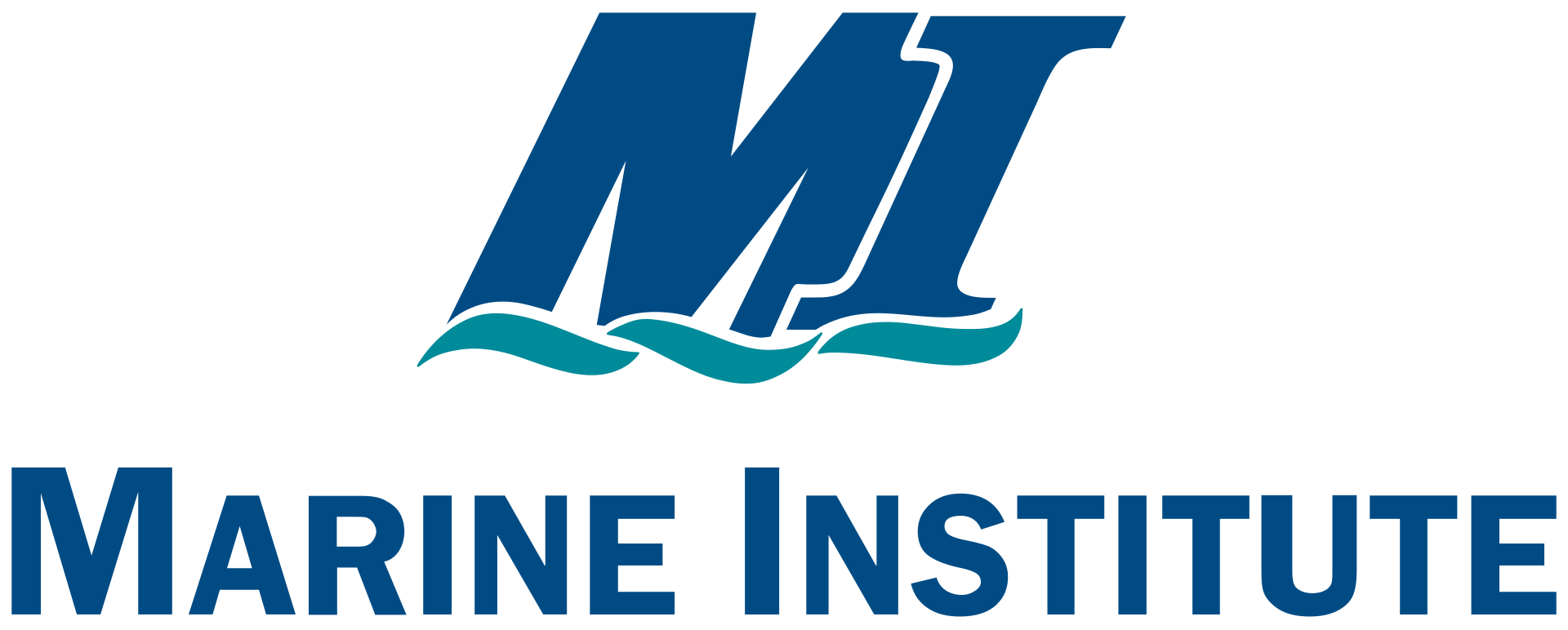
Research Category: Research Facility/Centre
- Facility / Research Centre | Ocean Engineering Research Centre
The Ocean Engineering Research Center (OERC) is located within the Faculty of Engineering and Applied Science at Memorial University. OERC’s objectives are to advance ocean engineering research and technology development; promote interaction among researchers and ocean engineering technology stakeholders and the research community; foster an innovative, wealth-creating research climate, technology transfer, entrepreneurship and commercialization of … Ocean Engineering Research Centre
- Facility / Research Centre | Office of Applied Research and Innovation (OARI)
Utilize industry challenges as the content for the college’s unique capstone project curriculum and applied research OARI seeks applied research funding to support project expenses and provides project management oversight Industry received innovation support previously not present within the company for little to no cost
- Facility / Research Centre | School of Sustainable Development
Support development of projects in the climate change sector that strategically respond to increasing demand for pertinent emerging technologies. Address labour market demands for upskilling and retraining or displaced workers across related industry sectors Create opportunities for knowledge sharing among experts from various disciplines by facilitating a collaborative, interdisciplinary approach to program development, program renewal … School of Sustainable Development
- Facility / Research Centre | Harsh Environment Research Facility
The Harsh Environment Research Facility will be a world leading facility that will enable clean energy research for harsh environment applications. Key infrastructure includes a climatic wind tunnel integrated with a wave basin which will provide for an extensive range of wind speed, temperature, precipitation and wave heights to be achieved within the facility. Innovative … Harsh Environment Research Facility
- Facility / Research Centre | Centre for Marine Simulation
The Centre for Marine Simulation (CMS) possesses extensive capabilities to develop and deliver specialized marine simulation services. The CSM is unique in that it operates a wide variety of simulators, some of which are mounted on motion bases. Ballast Control and Cargo Handling Simulator The ballast control simulator was commissioned in 1994. This simulator is … Centre for Marine Simulation
- Facility / Research Centre | Ocean Sciences Centre
The Ocean Sciences Centre is Memorial University of Newfoundland and Labrador’s cold ocean research facility. Located in Logy Bay, NL, the Centre houses laboratories where research is conducted on the North Atlantic fishery, aquaculture, oceanography, ecology, behaviour and physiology of a range of marine organisms.
- Facility / Research Centre | UAV Photogrammetry and Scanning Drones
Hyspex Mjolnor: Hyperspectral imaging sensor with short-wave infrared (SWIR) and very near infrared wave (VNIR) cameras to collect aerial images. Also has a LiDAR (Light Detection and Ranging) attachment to map the 3D surface. Comes with a tripod mount for non-aerial use. Astralite Edge: Combination topometric and bathymetric sensor used to create a 3D map … UAV Photogrammetry and Scanning Drones
- Facility / Research Centre | Reality Capture Instruments
Geoslam: Handheld mobile Simultaneous Localization and Mapping (SLAM) LiDAR (Light Detection and Ranging) unit used to create 3D maps of an area or structure, with a range of platforms and accessories. ExynAero: Autonomous (Level 4) Simultaneous Localization and Mapping (SLAM) LiDAR (Light Detection and Ranging) Uncrewed Aerial Vehicle (UAV) used for 3D mapping high-risk, GPS … Reality Capture Instruments
- Facility / Research Centre | Hyperspectral Scanning Unit (HSU)
The Hyperspectral Scanning Unit (HSU) is a mobile laboratory that offers world-class, high-resolution hyperspectral imaging capabilities over most currently accessible EM spectral ranges, spanning the Visible Near Infrared (VNIR) to the Longwave Infrared (LWIR) regions. The primary focus of the HSU will be to investigate geological materials, but there are no restrictions on the type … Hyperspectral Scanning Unit (HSU)
- Facility / Research Centre | Reality Capture and Digitization Technology Access Centre (RCD TAC)
For over 20 years, College of the North Atlantic’s (CNA) Office of Applied Research and Innovation has been a trusted innovation partner for the provision applied research services in Newfoundland and Labrador and across the country. Over the last four years, the College’s Centre for Reality Capture and Digitization Technology Access Centre has conducted over … Reality Capture and Digitization Technology Access Centre (RCD TAC)
- Facility / Research Centre | Qanittaq Clean Arctic Shipping Initiative
The Qanittaq Clean Arctic Shipping Initiative is a unique partnership, co-led and co-developed by Memorial University and the Inuit Circumpolar Council (ICC) Canada. It aims to address and respond to the increase in Arctic shipping, related environmental impacts affecting Arctic communities and support Inuit communities’ needs for safe and cost-efficient resupply. By working together on … Qanittaq Clean Arctic Shipping Initiative
- Facility / Research Centre | The Launch
Canada’s multi-purpose cold-ocean technology hub. The Launch, The Marine Institute’s state-of-the-art living lab bringing the world’s harshest cold-ocean environments to you. Run your ocean technology through research and development, testing, and demonstration in a rigorous cold-ocean environment to prove its real-world readiness.
- Facility / Research Centre | LOOKNorth, C-CORE
LOOKNorth is a Canadian national Centre of Excellence for Commercialization and Research (CECR), founded and hosted by C-CORE. LOOKNorth networks Canadian remote sensing innovators and provides a bridge to commercial markets through a combination of remote sensing technology expertise, project management support, continuous engagement with end users to understand market needs, and business development support. … LOOKNorth, C-CORE
- Facility / Research Centre | Facilities for Ice-related Research, C-CORE
Since 1975 C-CORE has provided research-based advisory services and technology solutions to help clients mitigate operational risk in ice/iceberg-prone waters world-wide. With a special focus on understanding and managing ice risk, protecting vessels and infrastructure, and advancing design for frontier regions, C‐CORE leads the world in ice and ocean engineering. We add value to design … Facilities for Ice-related Research, C-CORE
- Facility / Research Centre | Geotechnical Centrifuge Facility, C-CORE
C-CORE provides research-based advice and innovative solutions for the geotechnical aspects of infrastructure projects, both onshore and offshore. Market sectors served include oil & gas; pipeline; mining; Engineering, Procurement, Construction Management (EPCM) Contractors; and government. C-CORE’s geotechnical expertise, founded in physical and numerical modelling, includes pipeline testing, ice–seabed interaction, soil–structure interaction and reduced scale physical … Geotechnical Centrifuge Facility, C-CORE
- Facility / Research Centre | The Earth Resources Research and Analysis Facility (TERRA) (CREAIT Lab)
The Earth Resources Research and Analysis (TERRA) Facility is housed in the Department of Earth Sciences. TERRA provides chemical and physical analyses utilizing a large variety of instrumentations, including ICP-MS, XRF, XRD, Microprobe, radiogenic isotope, and stable isotope mass spectrometers.
- Facility / Research Centre | Micro Analysis Facility (MAF) (CREAIT Lab)
MAF specializes in high-resolution imaging and in-situ microbeam chemical analysis and age dating of minerals and other materials such as environmental and archaeological samples. The Facility has ongoing research and development projects on ore characterization for metallurgy and advanced mineral exploration but aims to support a wide range of research throughout the university and beyond. … Micro Analysis Facility (MAF) (CREAIT Lab)
- Facility / Research Centre | Centre for Chemical Analysis, Research and Training (C-CART) (CREAIT lab)
C-CART provides research support, training and chemical analysis services, to undergraduate and graduate students, university researchers, government agencies and private sector R&D companies. The instruments associated with C-CART are grouped into four service areas: Nuclear Magnetic Resonance (NMR), X-Ray Crystallography (XRD), Mass Spectrometry (MS) and Materials Characterization (MC).
- Facility / Research Centre | Innovating Digital Energy Analytics (IDEAs), Faculty of Engineering and Applied Science
Memorial University is home to the Innovating Digital Energy Analytics (IDEAs) group. Our mission is to push the boundaries of digital analytics in the field of petroleum and energy, with a focus on cutting-edge technologies.
- Facility / Research Centre | Waste Biomass to Bioproducts, Faculty of Engineering and Applied Science
We develop processes to convert “low value” biomass processing and natural resource processing by-products (such as fish processing waste, forestry residues, mine tailings, and agricultural residues) to higher-value products such as biofuels, biomaterials (e.g. carbon capture and storage adsorbents), platform chemicals, nutritional supplements, and animal/fish feed. Our lab has the capacity to characterize the residues … Waste Biomass to Bioproducts, Faculty of Engineering and Applied Science
- Facility / Research Centre | Green Process Engineering Laboratory, Faculty of Engineering and Applied Science
Green Process Engineering Laboratory (GPEL) at Memorial University provides expertise and facilities to carry out research on the development of eco-friendly functional materials and their applications in the detection, removal and degradation of water contaminants. By using renewable feedstock and green solvents, functional materials (e.g. carbon quantum dots-based fluorescent sensors, porous biopolymer-based adsorbents, and nanocarbon … Green Process Engineering Laboratory, Faculty of Engineering and Applied Science
- Facility / Research Centre | Thermal, Fluids and Energy Research Lab, Faculty of Engineering and Applied Science
The Thermal, Fluids and Energy Research Lab is dedicated to advancing sustainability through 21st century fundamental and applied research. The facility, accompanying equipment and talented personnel position the lab to conduct cutting-edge research on a variety of important physical processes. The research is critical to improving the performance and viability of sustainable energy systems, as … Thermal, Fluids and Energy Research Lab, Faculty of Engineering and Applied Science
- Facility / Research Centre | Hibernia Enhanced Oil Recovery Lab, Faculty of Engineering and Applied Science
Centrifuge Contact Angle Coreflooding (Coreflooding Two-Phase or Three-Phase System) Densitometers Fluid Recombination GC with SimDis Interfacial Tension Mercury Porosimeter Pore Network Micromodels Pumps PVT System Visualization Pressure Cell Soxhlet Viscometers





